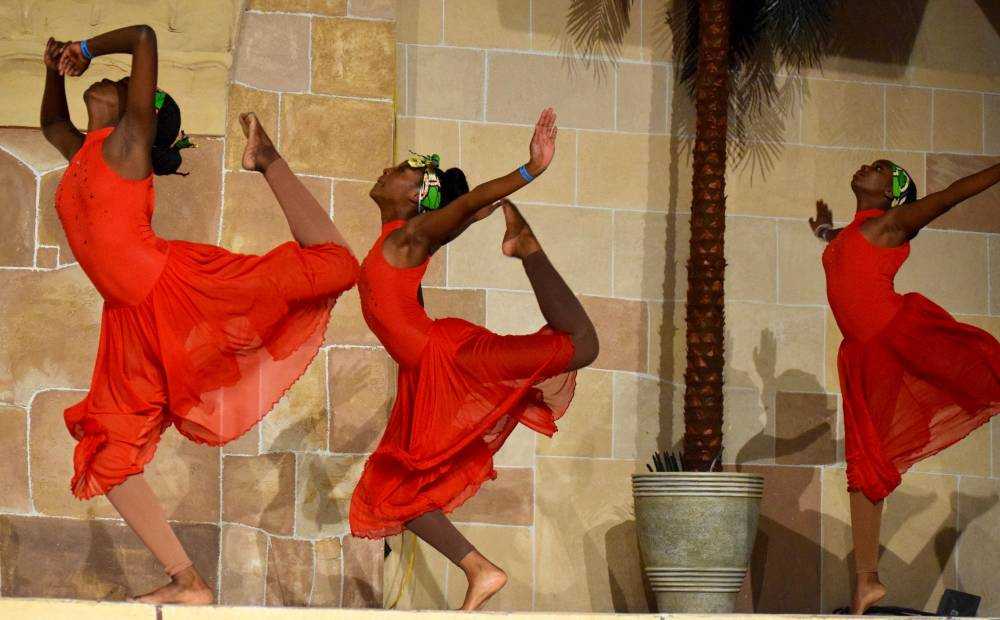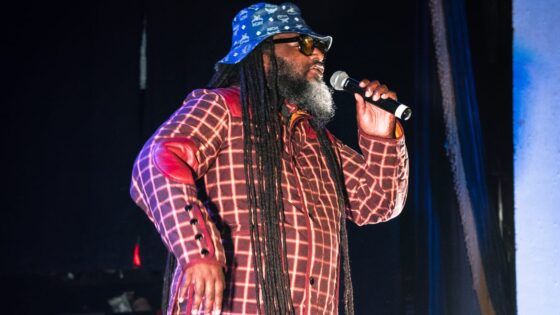on
BY JELANI GRANT
For the 18th year, the Black Business & Professional Association (BBPA) celebrated the life of Dr. Martin Luther King Jr. at the McVety Conference Centre located in the Eglinton Avenue and Don Mills Road area. The event commemorated the many transformative moments of Dr. King with songs, instrumental bands, spoken word pieces and choreographed dance.
Hosted by radio personality Kerry Lee Crawford, the theme conveyed one of Dr. King’s most famous quotes, “If you can’t fly then run, if you can’t run then walk, if you can’t walk then crawl, but whatever you do you have to keep moving forward”, which remains relevant to progressiveness within the black community.
The Canadian & black national anthem opened the night sung by gospel singer Rhonelle Paula Patrick.
Minister of Education Mitzi Hunter called the celebration timely, saying, “the dream still matters today…it gives us hope, it gives us inspiration, opportunity, and vision”. As Ontario’s first black Minister of Education, Hunter said she knows the importance of education and how much it should be valued.
Distinguished guests included Hunter, members of the Toronto Police Department, MPs Andrea Horwath and Celina Caesar-Chavannes, York Region Deputy Chief of Police Andre Crawford, and Mayor John Tory.
MP Horwath presented BBPA president Pauline Christian with a scroll, which recognized the organization for the continuous celebration of Dr. King each year.
Guests enjoyed performances from the Crawford Academy jazz ensemble with songs called “That’s All” and “All We Ask” and Nadine Williams, who performed a spoken word piece called “The Dream Matters”.
The Ubuntu Drum and Dance Theatre displayed their talents and knowledge of African music and dance. The youth group, made up of ten drummers and eleven dancers, has been performing since 2011 and continues to entertain the Greater Toronto Area with their lively choreography and sounds.
The Keynote Speaker was Oakwood University President, Dr. Leslie Pollard. He said that positive change must come with some form of struggle. “There is a point where all of us need to be tired of giving in…tired of allowing injustice to stand”, he said. Dr. Pollard is an editor and contributing author to an edition on leadership and cultural competence entitled Embracing Diversity: How to Reach People of all Cultures. Since its publication, the volume has been translated into Spanish, German and French and has become a global text for transcultural leadership education.
Following Leslie’s speech, there were several other performances including, saxophonist Kingsford McKenzie, Cora Reid, Amani, Latoya Mullings, the Mississauga Church Choir and the CHYE Litaneers who performed their original piece called “Open Your Eyes”, and spoke on gender roles and how some expectations from either gender can contradict and blind people from self-actualization.
Mayor john Tory arrived later and spoke about Toronto’s diversity compared to other areas of the world. He said that while people are still marginalized in this city and there is still work to be done, the citizens of Toronto regularly demonstrate the inclusiveness.
A 5th grader named David Richards spoke working on goals we set for ourselves and how we can achieve them. “Don’t let anyone deny your dream…dream with conviction, for your dream matters”, he said to a full audience. Richards has already spoken at numerous churches and dreams of being a pastor when he grows up.
Though Dr. King was shot and killed in 1968 and the United States government was found guilty in the murder, he had already become a voice for African-Americans, standing up for nearly every corner of legal and social injustices, which limited black people to the position of secondary citizen. One of Dr. King’s memorable moments is his “Give Us The Ballot” during the prayer pilgrimage in 1957, where almost 25,000 demonstrators met at the Lincoln Memorial in Washington, D.C., to listen to three hours of spirituals, songs and speeches that urged the federal government to fulfill the three-year-old Brown vs. Board of Education decision. This decision would rule that separate but equal public schools were unconstitutional, allowing children of color to attend public schools with better facilities and learning resources. A more famous moment though was in 1963 when he delivered his “I Have A Dream” speech to more than two hundred thousand people at Lincoln Memorial. The march was organized with the intention of pressuring the John F. Kennedy administration to initiate a strong federal civil rights bill in Congress; and they were successful. The Civil Rights Act was passed in 1964 and the Voting Rights Act in 1965, changing America forever.
The event had several sponsors including TD Bank Group, The Royal Bank of Canada, Rogers TV, the City of Toronto, all serving as a testament to the importance of a night recognizing Dr. King’s actions during the Civil Rights Movement and beyond. Bloody Sunday in Selma, Alabama, winning the Nobel Peace Prize in 1964, speaking against the Vietnam War, meeting with the president following a number of arrests and the list goes on. The significant moments he created in history continue to impact anyone who feels the desire to fight against inequality.
Stay in the loop with exclusive news, stories, and insights—delivered straight to your inbox. No fluff, just real content that matters. Sign up today!














